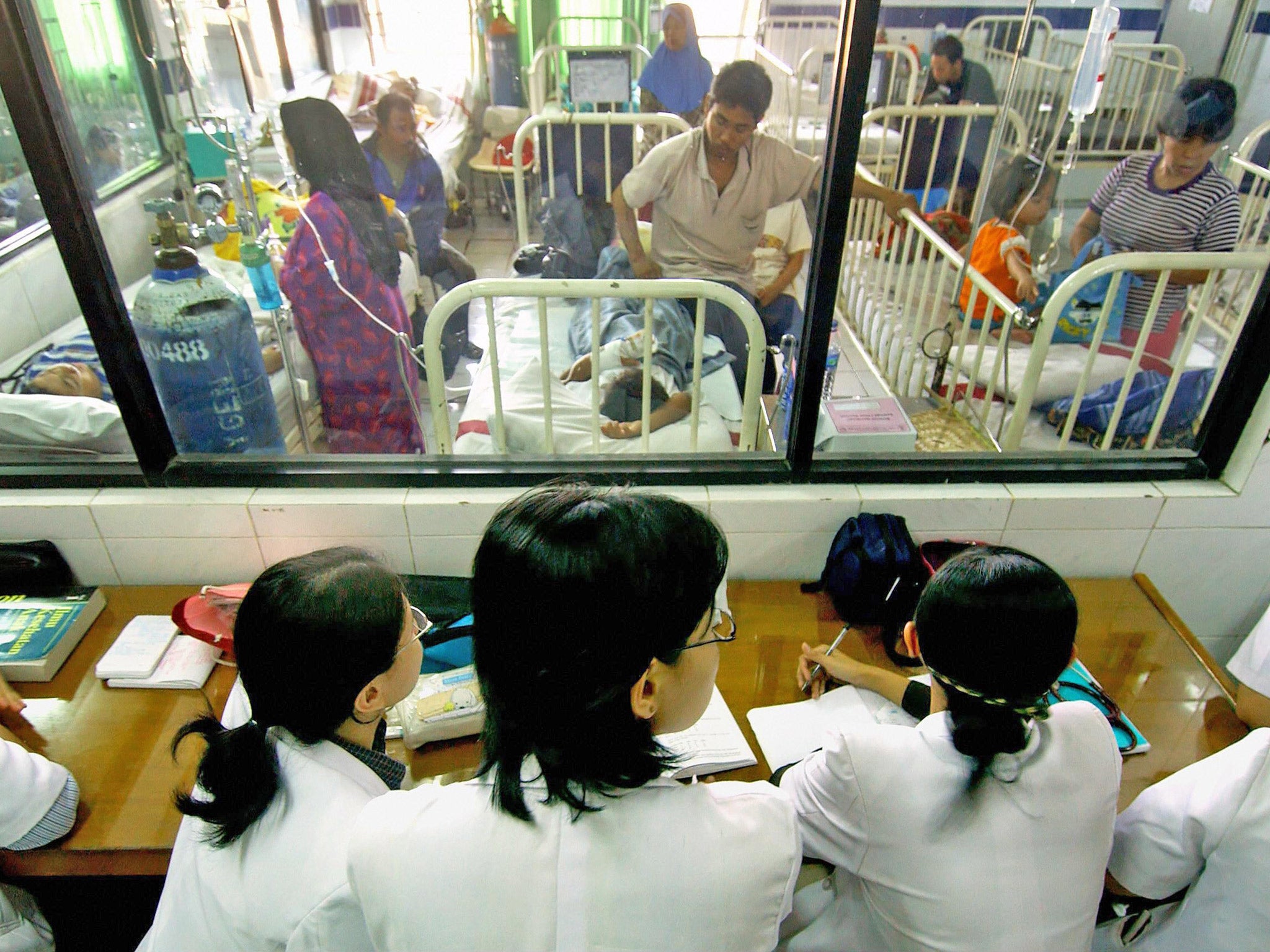Singapore on alert after dengue fever cases rise
More than 9,000 people have contracted the mosquito-borne disease since January

Doctors in Singapore are being urged to be more vigilant after a huge rise in the number of people struck down by dengue fever this year.
More than 9,000 people in the city state have fallen ill with the mosquito-borne disease since January and two have died. There have been more than twice as many cases in 2013 than during the whole of 2012.
The health ministry said it has alerted clinics in areas where dengue cases have spiked and has advised all medical practitioners about the early diagnosis and close monitoring of patients.
Dengue fever, spread by the Aedes aegypti mosquito, is common in Asia and Latin America. Symptoms include high fever, joint pains and nausea, but in severe cases it can lead to internal bleeding, liver enlargement, circulatory shutdown and death.
Part of the reason for this year’s increase is that the dengue virus seems to be showing more strength and resistance, Asok Kurup, a doctor at Mount Elizabeth Hospital’s infectious diseases care centre, said. Officials have urged Singaporeans to take precautions and clear stagnant water where mosquitoes breed, but some residents say the main responsibility lies with the healthcare system. “With so many cases occurring, shouldn’t the vigilance fall on our doctors instead?” said Audrey Quek, whose teenage son had dengue two years ago. She said the doctor initially mistook his fever and joint pains for flu symptoms.
Authorities say they are taking other measures such as increasing insecticide fumigation and sending officers to inspect locations where mosquitoes might breed. Public-awareness campaigns are also being planned, including an online reality show focusing on environmental officers on anti-dengue patrols.
Singapore imposes tough penalties on residents whose homes are found to be mosquito breeding areas. Offenders can be fined and jailed for three months. Singapore’s worst dengue outbreak in recent years was in 2005, when nearly 14,000 cases and 25 deaths were reported.
Fatal bite: The symptoms
Dengue fever is transmitted via a bite from an infected mosquito. Symptoms, which usually become apparent between four and seven days after infection, include a sudden high fever, headaches, pain behind the eyes and a rash similar to measles.
Extreme cases, most commonly found in older children and adults with weakened immune systems, can lead to dengue haemorrhagic fever, which damages the lymph and blood vessels. Symptoms include bleeding from the nose and the enlargement of the liver – and it can result in death.
Subscribe to Independent Premium to bookmark this article
Want to bookmark your favourite articles and stories to read or reference later? Start your Independent Premium subscription today.

Join our commenting forum
Join thought-provoking conversations, follow other Independent readers and see their replies